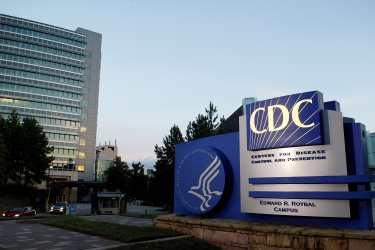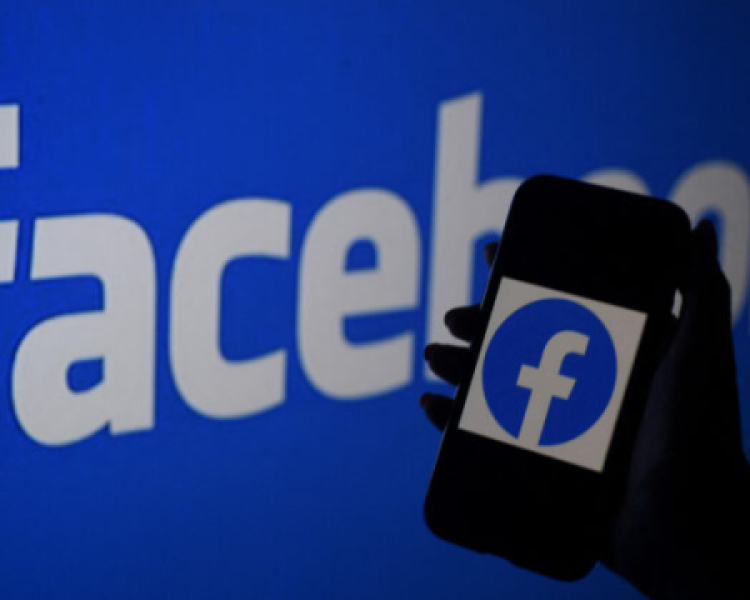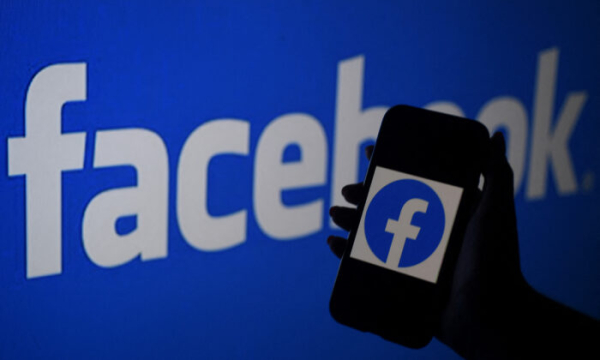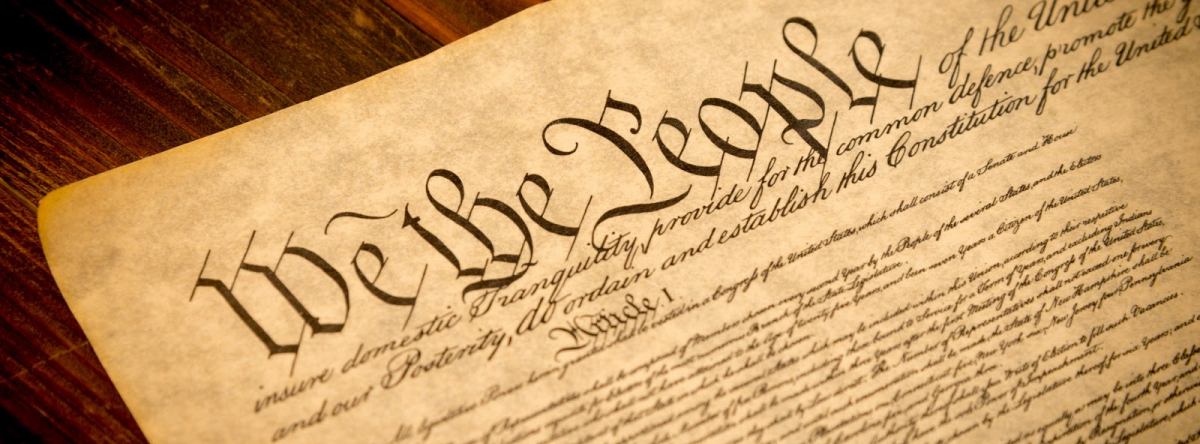August 6, 2021 Epoch Times by Meiling Lee
Facebook “coordinated closely” with the Centers for Disease Control and Prevention (CDC) in controlling the narrative of the CCP virus pandemic, including suppression of alleged misinformation, and gave the health agency free advertising estimated at $3 million, according to Judicial Watch, which obtained emails that were released on July 28.
The CDC released 2,469 new documents (pdf) to Judicial Watch in response to a Freedom of Information Act (FOIA) filed against the U.S. Department of Health and Human Services.
In an email exchange beginning on Jan. 26, 2020, days after a senior program officer at the Bill & Melinda Gates Foundation connected the CDC with Facebook, a representative at the social media giant informed the CDC of the actions it was taking in regards to combating misinformation on the CCP (Chinese Communist Party) virus, also known as the novel coronavirus, that causes Covid-19.
Titled the “FB coronavirus narrative,” Facebook writes that it was “taking a three pronged approached to the global response” for the CCP virus:
“Limit misinformation and other harmful content on our platforms. Our third-party fact-checkers have been rating information on this topic as false, including the AP, Politifact, AFP Hong Kong, Rapple IQ in the Philippines. As a result, we show people who come across that false content accurate information from our fact-checking partners and strong warning labels. We also send notifications to people who already shared this content alerting them that it’s been fact checked.
“Provide accurate and helpful information on our platforms to our partners. Partners are already using our platforms to share accurate information about the situation, including on Pages. We have also provided ad credits to the World Health Organization and the Philippines’ Department of Health to enable them to run coronavirus education campaigns on Facebook in-region, which we will continue to do. We’re continuing to explore additional steps we can take, including dedicated information modules on relevant search queries and improved search ranking.
“Empower partners with data tools. We’re sharing aggregated mobility data and high resolution density maps with various partners (e.g., National Tsinghua University (Taiwan); Harvard School of Public Health) to help inform forecasting models for the spread of the virus as part of our broader Data for Good program. We’re exploring doing this with a broader set of partners (e.g., WHO, US CDC) and also helping partners understand how people are talking about the issue online through tools like Crowdtangle to inform their efforts.’”
The social networking giant said that it was working with more than “60 fact-checking organizations that review and rate content in more than 50 languages around the world” in an effort to stop the spread of misinformation about Covid-19. To support the fact-checkers, Facebook invested in a $1 million grant program in partnership with The International Fact-Checking Network during the pandemic.

A general view of the U.S. Centers for Disease Control and Prevention (CDC) headquarters in Atlanta, Ga., on Sept. 30, 2014. (Tami Chappell/Reuters)
In a different email dated Feb. 6, 2020, the CDC asked a Facebook representative if he was “in the loop” about an email from Facebook to the Department of Health and Human Services Health Attache for India.
That email (pdf) stated that Facebook was taking “proactive as well as reactive steps to control information and misinformation related to coronavirus which includes links to [the] WHO page as well as removal of misinformation,” adding that “at Mark Zuckerberg’s request, there is a group that has been organized to help generate and implement new ideas ‘offense’ approach on how FB can assist in the global response to the Coronavirus.”
The group came up with three ideas that were to be explored—creating a centralized CCP virus page “with curated and localized content from trusted sources,” enlisting public figures, celebrities, and government officials to “build awareness of accurate information,” and allowing people to use stickers on Instagram that linked out to the CCP virus Facebook page.
The emails released by Judicial Watch also showed that Facebook gave the CDC $3 million in free advertising credits that allowed the health agency to run CCP virus campaigns on Facebook and Instagram.
In a March 8, 2020 email from Facebook, the CDC received four ad credits totaling $2 million for the purpose of supporting messaging related to the CCP virus.
The then-CDC Chief Operating Officer, Sherri Berger thanked Facebook for the $2 million in a March 14 email.
“On behalf of the Centers for Disease Control and Prevention (CDC) and by the authority delegated to me through Section 231 of the Public Health Service Act (42 U.S.C. Section 238), as amended, thank you for Facebook’s non-monetary gift of advertising credited with an estimated value of $2,000,000. The gift will be used by CDC’s Covid-19 response to support [the] dissemination of critical public health messaging. Thank you!”
Berger in a second email sent on Aug. 10, 2020, thanked Facebook again, this time for the $1 million of free advertising credits, adding that, “this gift will be used by CDC’s Covid-19 response to distribute scientifically accurate data, guidance, and risk communication information on COVID-19 to a broader audience.”
While the CDC acknowledges the in-kind donation from Facebook in the emails, the donations were not listed in its fiscal year 2020 gifts to the CDC (pdf). An email inquiring clarification on this issue was not answered by the CDC, who directed The Epoch Times to reach out to the FOIA office instead.
In addition, the health agency did not reply to an inquiry of whether it had fast-tracked the gift reviewing process for Facebook.
The CDC, on its “Gifts to CDC” page, says to maintain its scientific integrity, the agency engages in a rigorous and transparent gift review process.
“CDC’s gift acceptance policy requires a comprehensive gift review prior to accepting a gift. This includes CDC Foundation (CDCF) gifts and gifts given directly to CDC, whether they are monetary or non-monetary,” the health agency stated.
“In evaluating whether to accept a gift from a donor, CDC must perform a balancing test to determine whether the benefits outweigh the risk that accepting the gift would reflect unfavorably upon CDC. For example, the gift should not be accepted if any employee’s ability to carry out his or her responsibilities or official duties in a fair and objective manner is influenced; if acceptance of the gift could compromise the integrity of a government program or any official involved in that program; or if the donor has an expectation of receiving a future benefit such as a contract award,” it added.
The CDC Foundation was also provided four ad credits totaling $50,000 from Facebook on March 3, 2020, but the non-monetary gift, like with the CDC, was not listed on its “Fiscal 2020 Gifts to the Foundation.”
During the pandemic, other social media giants also provided an in-kind donation to the CDC and assistance in optimizing CDC’s posts, videos, or tweets about COVID-19.
Twitter offered CDC free advertising on its Promoted Trend and Promoted Spotlight Trend, with an estimated value of $75,000 and $150,000 respectively. In addition, Twitter said it had “an in-house team ready to help with messaging and creative assets” for the CDC to use.
In a March 26, 2020 email, a CDC representative asked Twitter for assistance in getting its partner organization verified status.
“A partner organization of CDC’s (Association of Public Health Laboratories+ its CEO) is hoping to get verified status on Twitter so that the COVID-19 messaging they are posted gets the same resonance as other verified accounts,” the CDC representative wrote. “Is there anything you can do to have @aphl and @scottjbecker reviewed for verified status? Appreciate any assist you might be able to provide.”
Twitter did not reply to an inquiry of whether it had assisted with the CDC’s request.
In an email exchange beginning March 14 (pdf), a Google representative offered the CDC free video advertisements on YouTube that “is usually only available to YouTube owned and operated products,” and as such, the in-kind donation could not be assigned a value. Google also offered to help create the video ads for the CDC.
A Google representative wrote, “There are legal and finance reasons why we can’t value the inventory—even at a nominal range—so at best we can offer that we are giving the CDC YouTube proprietary placements for a period of time that would normally be used for our subscription products like YouTube TV and YouTube Premium. ”
In its acceptance email of the in-kind gift, Berger wrote, “Google LLC is offering to provide YouTube promotional inventory with an estimated value of $0 to CDC for use in the agency’s COVID-19 response efforts.”
She further adds, “I understand that Google LLC may be a vendor and/or lobbyist employer and that Google LLC’s employees may be registered lobbyists. Providing the gift will not prevent Google LLC or its affiliates from supplying products or services to CDC in the future; CDC, however, is under no obligation to accept future services from Google LLC or its affiliates.”
The CDC, Twitter, Google, and Facebook did not reply to requests for comment. Article
Share This Post...











